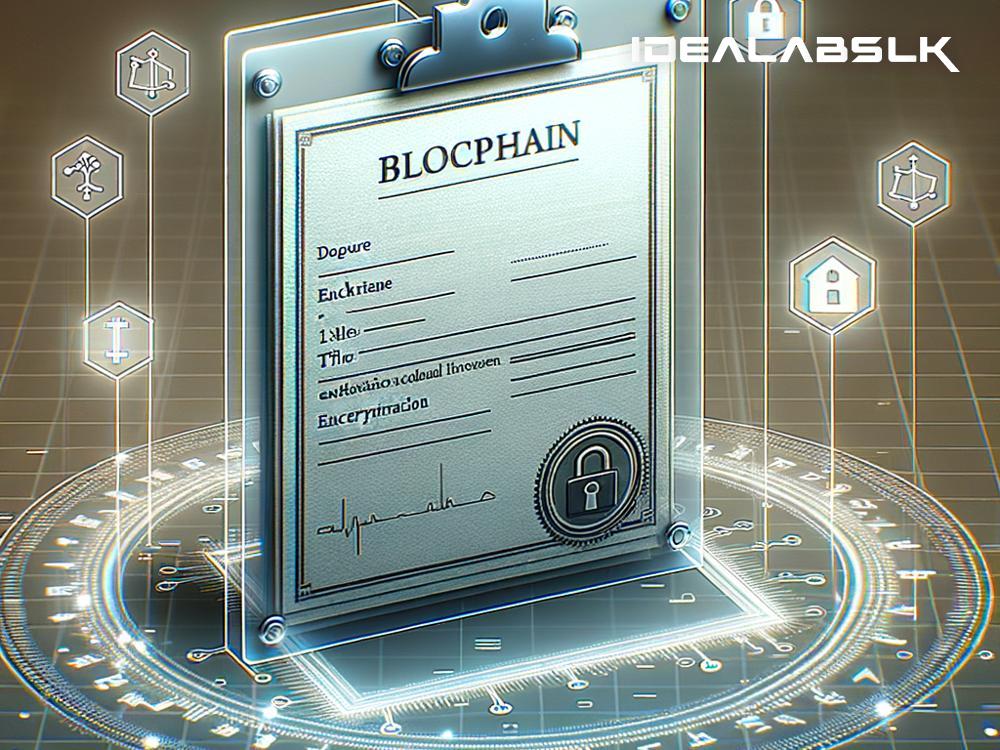Unveiling the Future of Land Ownership: Blockchain-Powered Solutions
In the age of digital transformation, various sectors are witnessing revolutionary changes, and real estate is not far behind. Among the numerous innovations, one that stands out with a promise of security, transparency, and efficiency is the use of blockchain technology in managing land titles. Understanding this groundbreaking shift may sound complex, but let's break it down into simpler terms and explore how blockchain-powered solutions are paving the way for a new era in real estate land titles.
What is Blockchain?
Imagine a digital ledger, similar to a notebook, where all transactions or agreements are recorded. The unique aspect of this 'notebook' is that once something is written down, it cannot be erased or altered. This quality makes blockchain extremely secure and trustworthy. Additionally, this ledger isn't stored in a single place but is distributed across countless computers worldwide, making the data accessible yet tamper-proof.
The Traditional Land Title System: A Glimpse into the Challenges
Traditionally, land titles are documents that prove ownership of a piece of land. The process of managing these titles often involves a lot of paperwork, numerous visits to government offices, and an unsettling room for errors and fraud. Misplaced documents, delays in updating records, and land title fraud are just some of the challenges property owners face. Enter blockchain, a technology offering solutions to these age-old problems.
How Blockchain is Revolutionizing the Real Estate Land Title System
1. Enhanced Security
Because blockchain operates through a decentralized system, it significantly reduces the risk of fraudulent activities. Each transaction or change in ownership is recorded as a new 'block' of data, linked to the previous block, thus creating a chain. Altering any information would require changing the entire chain across all copies of the ledger, which is practically impossible. This robust security feature ensures the authenticity of land titles, providing peace of mind to property owners.
2. Transparency and Trust
Blockchain technology fosters transparency. All parties involved - buyers, sellers, and authorities - have access to the transaction history, ensuring that everyone is on the same page. This open yet secure access builds trust among parties, a cornerstone in the real estate sector. It also means that verifying the authenticity of land titles becomes much easier, significantly reducing the chances of disputes.
3. Efficiency and Speed
Typical land transactions can be time-consuming, often taking weeks to complete due to the voluminous paperwork and bureaucratic processes. Blockchain simplifies and speeds up the process by making land titles easily accessible and transferable through digital channels. What used to take weeks can now be completed in just a few days or even hours, streamlining real estate transactions like never before.
4. Reduced Costs
By eliminating intermediaries and reducing the paperwork involved, blockchain can significantly lower the costs associated with transferring land titles. This not only makes the process more efficient but also more financially accessible to a wider audience.
Real-World Applications and Future Prospects
Several countries and regions are already exploring or implementing blockchain solutions for land titles. For instance, Sweden has tested a blockchain-based system for land registries, aiming to increase efficiency and reduce fraud. Similarly, the Republic of Georgia has embarked on a project to secure all land titles on a blockchain, showcasing the potential for this technology to transform real estate transactions globally.
The future looks promising as more governments and private entities recognize the benefits of blockchain in real estate. However, widespread adoption requires overcoming challenges such as regulatory hurdles, technological integration with existing systems, and ensuring data privacy.
Conclusion
Blockchain-powered solutions for real estate land titles are not just a futuristic concept but a present reality in some parts of the world. With its unmatched security, transparency, and efficiency, blockchain is set to revolutionize the way we perceive and manage land ownership. As we continue to embrace digital transformation across sectors, the real estate industry is poised for a significant shift, making ownership more accessible, disputes less likely, and transactions smoother. The path forward is brimming with possibilities, and it's only a matter of time before blockchain becomes a cornerstone of real estate transactions worldwide.

